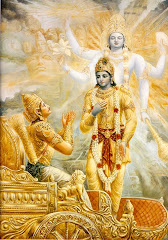Yet
another novel from the Jeeves canon, Joy in the morning is a joy to
read.
Joy in the Morning is a novel by P.G.
Wodehouse, first published in the United States on August 22, 1946 by Doubleday & Co., New York, and in the
United Kingdom on June 2, 1947 by Herbert
Jenkins, London. Some later American paperback editions bore the title Jeeves
in the Morning.
The
title derives from an English translation of Psalms 30:5:
"Weeping may endure for a
night, but joy cometh in the morning."
About Jeeves: After
having read three novels (Carry
On, Jeeves, Thank
You, Jeeves and Right
Ho, Jeeves) from the Jeeves cannon, I was (understandably) curious to
know Jeeves' full-name. ... And soon enough, I found out: Reginald Jeeves.
Its got a nice ring to it, what say?
But
wait till you hear Bertie's full-name. It is: Bertram Wilberforce
"Bertie" Wooster.
Phew!
Wonder how he managed with such a tongue-twister of a name when he was
knee-high.
It
seems: Bertie's middle name, "Wilberforce", is the doing of his father, who won
money on a horse named Wilberforce, in the Grand National - the day
before Bertie was born, and insisted on Bertie carrying that name for the rest
of his life. [I guess: a horse-loving parent will be a horse-loving parent. Always.]
Lets
get back to Jeeves: Created in 1915, Jeeves continued to appear in
Wodehouse's work until his final completed novel Aunts Aren't Gentlemen in
1974. He was Wodehouse's most famous character. [No disputes there, what?!]
In
his 1953 semi-autobiographical book (Bring on the Girls!), written with Guy
Bolton, Wodehouse suggests that Jeeves was based on an actual butler called
Eugene Robinson that Wodehouse employed for research purposes. He recounts a
story where Robinson extricated Wodehouse from a real-life predicament.
Wodehouse also recounts that he named his Jeeves after Percy
Jeeves (1888–1916), a then-popular English cricketer for Warwickshire.
Percy Jeeves was killed at the Battle of the Somme (WWI) during the attack on High Wood
in July 1916, two months before the first appearance of the eponymous butler
who would make his name a household word.
Well,
all I can say is that: there probably have been few tributes that has matched
or surpassed this one.
The
most invaluable nugget contained in the book ("Wodehouse at the Wicket"
by P. G. Wodehouse and Murray Hedgcock) traces the origin of the name Jeeves to
Percy Jeeves, a Warwickshire professional cricketer known for his impeccable
grooming, smart shirts and spotlessly clean flannels. Wodehouse probably saw
him take a couple of smooth, effortless catches in a match between
Gloucestershire and Warwickshire. The name, the immaculate appearance and the silent
efficiency stuck... and the inimitable manservant appeared first in 1916, just
weeks after the original Percy Jeeves died in the war in France.
As
for the 1915 or 1916 conflict:
Jeeves
and Bertie first appeared in "Extricating Young Gussie", a short
story published in September 1915, in which Jeeves's character is minor and not
fully developed and Bertie's surname appears to be Mannering-Phipps. The first
fully recognizable Jeeves and Bertie story was "The Artistic Career of
Corky", published in early 1916. As the series progressed, Jeeves assumed
the role of Bertie's co-protagonist; indeed, their meeting was told in November
1916 in "Jeeves Takes Charge".
And that
should explain Percy Jeeves' influence: the fictional character of Jeeves
taking off in such a big way from 1916 onwards.
Frankly:
Thank God for Percy Jeeves! Else a lot of our laughs would have remained
un-laughed.
Here's why: apparently the Jeeves (of 1915) was originally intended for one-time use with
two speaking lines!
Its good that this changed, 'coz no Jeeves, ... no Bertie, as we know
him that is; and no Jeeves and Bertie, ... no P.G. Wodehouse - as
we know him either.
[It
reminds me of that popular nursery rhyme: For want of a nail the shoe was
lost. For want of a shoe the horse was lost. For want of a horse the rider was
lost. For want of a rider the battle was lost. For want of a battle the kingdom
was lost. And all for the want of a horseshoe nail.]
Ha!
Ha!
Jeeves
has inspired an Internet search engine as well: Ask Jeeves, and is now a generic term in references such as the Oxford English Dictionary too.
Jeeves's
first name of Reginald was not revealed for 56 years, until the
penultimate novel in the series, Much Obliged, Jeeves (1971), when
Bertie hears another valet greet Jeeves with "Hullo, Reggie." The
readers may have been surprised to learn Jeeves's first name, but Bertie was
stunned by the revelation "that he had a first name" in the first
place.
Well,
so am I. :)
My twopennyworth: In Joy
in the Morning, there is no bothersome banjolele, but Spinoza
makes its appearance.
Spinoza is
Jeeves' favourite philosopher. He likes to relax with "improving"
books such as the complete works of Spinoza, or to read "Dostoyevsky and
the great Russians". He finds Nietzsche "fundamentally unsound".
Which
means: Wodehouse may have found Spinoza's work invigorating.
As
for moi: Spinoza reminds me of a witch's spindle - the type one finds in
Fairy Tales ... and pizza. And since neither Spinoza nor Pizza interests me
sufficiently, I will quickly opt for the freshly-made ginger bread instead -
anytime. :)
Jeeves
has an encyclopedic knowledge on everything under the sun and above it as well:
philosophy, literature, poetry - especially romantic poetry, science, history, cuisine,
psychology, politics, geography; even medicine - remember his legendary and
magical concoctions?!
He
is perhaps the original Prof. Google, the one that held forth when the
creators of the modern 'Google' were invisible and floating in the air.
Incidentally,
Satyajit Ray too thought of 'Google' long before 'Google' existed. Google's
creators were not yet born when Ray created 'Sidhujyatha' whose formal
name is Shiddeshwar Basu. Ray's extremely popular fictional detective character
- Feluda - describes him as 'the walking encyclopedia'. While Sidhujatha
describes himself thus: 'Sherlock Holmes had an elder brother, Mycroft Holmes.
Although he was very lazy, he was really a big brother to Sherlock in
intelligence. Even Sherlock often used to pay visits to Mycroft for his help.
Similarly, I am the Mycroft to Felu.'
Sidhujyatha lives in Sardar Sankar Road, Lake Market,
Calcutta. He is a bibliophile and has an extensive base of general knowledge,
current and historical affairs. He is a close friend of Feluda's father,
being neighbours in their ancestral village. Feluda's jyatha
(uncle - "jyatha" is the endearing word for father's elder brother in
Bangla) is said to have a photographic memory and is a vast source of
information and comes in handy when Feluda is in need of some. His vast
knowledge comes from his collection of varied kinds of newspaper clippings that
he has accumulated over the years. The role was played by Harindranath
Chattopadhyay in 'Shonar Kella' ('The Golden Fort'), Ajit Bandopadhyay in
'Baksha Rohoshya' ('The Mystery of the Kalka Mail') and by Haradhan Bandopadhyay
in 'Kailashe Kelenkari' ('A Killer in Kailash') and 'Gorosthane Sabdhan'
('Caution in the Graveyard').
Harindranath Chattopadhyay was also seen in the Hrishikesh
Mukherjee directed classic (and Rajesh Khanna starrer) - 'Bawarchi'. He has by
far been the best Sidhujyatha, and it is unlikely that he (or his portrayal)
can be bested.
The word 'potential' is a big favourite in Bengal and Bengalis
are big on all the unsung geniuses (heroes or otherwise) who could have made it
but didn't. The workaholic Ray too reveals a soft corner for the unsung genius;
in the way he wrote Sidhujyatha (played brilliantly on screen by
Harindranath Chattopadhyay.) When complimented by Felu ("If you had
been a detective, we would have been out of work"), Sidhujyatha simply
responds: "If I had done a lot of things, a lot of people would have been
out of work. So, I don't do anything. I just sit here and keep the windows of
my mind open... "
Classic.
[The suffix "da" (short for "Dada") means
'elder brother' in Bangla, and not the lumpen elements of aamchi
Mumbai, mind you. "Da" is also a sort of honorific, used to address
an older unrelated male. It essentially signifies: respect.]
The storyline: In Joy
in the Morning we meet a host of characters, besides Bertie and Jeeves of
course. They are: Bertie's formidable Aunt Agatha and her husband Lord
Worplesdon aka Uncle Percy (Percival "Percy" Craye); his fetchingly attractive
former fiancée and yet another Spinoza-fan, Lady Florence Craye; her impish
brother Edwin and her currently oafish and formerly dumb brickish suitor - 'Stilton'
Cheesewright aka G. D'Arcy Cheesewright - the possessor of a "beefy frame,
pumpkin-shaped head and a face that looked like a slab of pink dough."
Well,
I had heard of several Cartwright, but Cheesewright (?) - this is the first.
Stilton
is an old chum of Bertie from their days at Eton and Oxford; here he appears
as the local bicycle riding copper at Aunt Agatha's rural village - Steeple
Bumpleigh. He is also engaged to Florence Craye who was in residence there.
There's
also the (almost celebrity) writer George 'Boko' Fittleworth (who's had his
photograph in the Tatler) and Zenobia ('Nobby') Hopwood.
Boko's
dress sense is bohemian-unique to say the least; he is never seen without his grey
trousers with a patch on the knee. On meeting Boko for the first time, the
extremely sartorially-sensitive Jeeves had "winced visibly and tottered off to
the kitchen, no doubt to pull himself together with cooking sherry" - as per
Bertie.
Boko
and Nobby "are planning to leap in among the orange blossoms" - thanks to Cupid's
dart, but Uncle Percy is the looming obstacle.
Bertie,
given his charitable disposition and spirit... volunteers to de-obstacle Uncle Percy
sufficiently enough for the lovebirds' "leap in among the orange blossoms" to
materialize.
However,
as usual, fate has something else in store. And our dear ol' Bertie finds himself at
the center of some renewed romantic attention from the Spinoza-loving
formidable intellectual and the author of 'Spindrift' - Lady Florence Craye. This
sets off the proverbial Newton's Third Law of Motion: for every action,
there is an equal and opposite reaction - from Stilton of course, but from a handful
of others as well. The impish Edwin too chips in. So what does Bertie do? Well,
read the book (or re-read it) - to find that out and enjoy some laughs.
There's
some mention of Catsmeat Potter-Pirbright. Funny name. [There's no Dogsmeat
though. And no Harry Potter or Fulbright either.]
Much
of the action happens in the precincts of Steeple Bumpleigh Hall and Wee Nooke,
some of it at the East Wibley Town Hall. A brooch and a Sindbad the Sailor
costume too play their respective parts. And so does a 'porpentine'.
Wodehouse is a great fan of Sherlock Holmes (and Sir Arthur Conan Doyle). He is a 'fan' of Agatha Christie, but a fan of Monsieur Poirot. I'm not sure of his opinion about Jane Austen though.
There's
a bit about Othello and Romeo, Longfellow and Tennyson. But there is also something
about Shakespeare going about stealing ducks, and an old Bacon and Shakespeare
gag about Bacon having written Shakespeare's stuff for him and then, possibly
because he owed the latter money or it may be from sheer good nature, allowing
him to take the credit for it.
Umm,
this must be one of the earliest instances of 'outsourcing' and 'exploitation'
or is it free labour or some sort of barter system? [What say you?]
There
is something about Cyrano de Bergerac too.
Hmm.
Guess Wodehouse is rather ambivalent about Shakespeare.
But
he is quite effusive about Sir Walter Scott. 'Coz Young Lochinvar appears
a few times.
[Just
in case you want to re-read this lovely poem (that most of us read way back in school),
here is a link.]
...
Wodehouse is undoubtedly a diehard romantic.
Verdict: Joy in the Morning is a single story
that runs through 29 chapters and 296 pages. As usual, the chapters are short
and make for a breezy read. Like Carry on, Jeeves, Thank You, Jeeves,
and Right Ho, Jeeves, this one too is an any-time, all-weather read.
There is a reasonable amount of interplay between Jeeves and Bertie here... and
what could be better than that?!
The production
quality of the book is good; I don't quite recall any editing errors either, so
if at all they exist, ignore them.
The book jacket
cover is in a (sort of) parrot green and cherry red combo. PG Wodehouse
appears in bright cherry red. It shines. Joy in the Morning appears in
white. Nice. There is a figure clad in the colourful Sindbad the Sailor
costume (whiskers and all) riding a bicycle and pedaling hard. Who do you think
it could be?
Details of the book: Joy in the Morning/
Author: P.G. Wodehouse/ Publisher: Arrow, an imprint of Random House/ Binding: Paperback/
Publishing Date: 01/07/2008/ Genre: Classics/ ISBN-10: 978-0-09-951376-6/ ISBN-13:
9780099513766/ Pages: 296/ Price: $19.95
Picture: The
book jacket cover of Joy in the Morning. Courtesy: link.













No comments:
Post a Comment